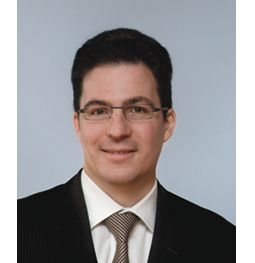Cegedim Talks CRM
Cegedim CEO Laurent Labrune talks to Pharm Exec Europe about how the company is maintaining its CRM lead in a rapidly changing industry.
Founded in France in 1969 by Jean Claude Labrune, Cegedim launched its first customer relationship management (CRM) product ten years later. By 1996, the company’s revenues exceeded E500 million. In May 2007, Cegedim bought US company Dendrite, an acquisition that made it the world’s biggest Life Sciences CRM firm. It now employs more than 8200 people in more than 80 countries.
Joining the ‘family firm’ in 1995, Laurent Labrune became CEO of Cegedim following its purchase of Dendrite. Here, he talks to Pharm Exec Europe about how the company is maintaining its CRM lead in a rapidly changing industry.

PEE: How is the CRM model evolving?
LL: As you know, pharma companies have been changing their commercial strategies, moving to a customer centric strategy, but also investing a lot in areas such as the specialty market. From a strategic point of view, our close involvement in supporting Life Science companies commercial operations have enabled us to develop functionality tailored to address the evolving needs of sales, marketing and medical organizations. For example, market access is a key area of focus. And there is a need not only to have visibility on a single customer but also the influence networks between the different stakeholders making decisions.
How have the recent waves of sales lay-offs affected the CRM market?
We’re seeing our customers re-organizing themselves of course. They have reduced their efforts in primary care, but they have also drastically increased their specialty market efforts. Oncology is one of those markets where there is a much stronger focus. So we’re seeing sales forces with different type of structures, sales forces that need new skills. This new commercial model is also good for us. In most emerging markets, we have seen and expect growth in the traditional model as face-to-face interactions have a very high value.
How are your new offerings serving this new commercial model?
We’ve just launched a new market access offering which delivers a comprehensive view of all the organizations and individuals involved in the drug market access process. This solution is already available in 11 countries across Europe, at a national or regional level. We have already launched the latest version of our flagship Customer Relationship Management (CRM) suite Mobile Intelligence 5.0, which provides greater support for key account management processes and key opinion leader management, as well as additional business intelligence tools. We have also expanded our functional footprint in other life sciences markets such as animal health, medical devices and consumer health.
Where are the new markets you’re focusing on?
We’ve just acquired the NOMI Group in the Nordic region, so we are really strengthening our product portfolio there. We’re continuing to expand our OneKey database business, especially in the emerging markets. We have expanded our CRM activitiesin India this year, which is going to be a big market for us, and we are investing strongly in China to make sure we’re able to support the strategic reach of the growing pharmaceutical companies there. We’re also leveraging the success experienced in the U.S. offering compliance services by launching a new compliance business in Europe. This new business is focused on offering regulatory consulting services and systems to measure spending on healthcare.
Where are the CRM challenges of these new markets?
What makes Cegedim unique is our focus in building a solid local presence so that we have strong operations that are able to support our key offerings and our intimate knowledge of the industry. The art of any CRM initiative is really to understand your customer, and our solutions can be tailored to each country or region.
Addressing Disparities in Psoriasis Trials: Takeda's Strategies for Inclusivity in Clinical Research
April 14th 2025LaShell Robinson, Head of Global Feasibility and Trial Equity at Takeda, speaks about the company's strategies to engage patients in underrepresented populations in its phase III psoriasis trials.
Beyond the Prescription: Pharma's Role in Digital Health Conversations
April 1st 2025Join us for an insightful conversation with Jennifer Harakal, Head of Regulatory Affairs at Canopy Life Sciences, as we unpack the evolving intersection of social media and healthcare decisions. Discover how pharmaceutical companies can navigate regulatory challenges while meaningfully engaging with consumers in digital spaces. Jennifer shares expert strategies for responsible marketing, working with influencers, and creating educational content that bridges the gap between patients and healthcare providers. A must-listen for pharma marketers looking to build trust and compliance in today's social media landscape.
Pfizer, GSK Gain ACIP Recommendations for RSV and Meningococcal Vaccines
April 18th 2025The Centers for Disease Control and Prevention’s Advisory Committee on Immunization Practices voted to expand access to Pfizer’s respiratory syncytial virus vaccine Abrysvo for high-risk adults in their 50s and voted in favor of GSK’s meningococcal vaccine, Penmenvy, for streamlined adolescent protection.